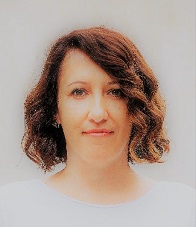Projects & Events
About the speaker:

Professor Marina Tisma is a full professor of biotechnology at the University of Osijek, Faculty of Food Technology, Croatia. In 2022, she completed the Executive Programme of Circular Economy & Sustainability Strategies at Judge Business School, University of Cambridge, UK. Prior to her academic career, she worked in the malting and brewing industry.
Her main research interest is valorization of lignocellulosic biomass for the production of high-value products with a focus on enzyme production through solid-state fermentation, enzyme reaction engineering, biogas and biodiesel production. She has published 65 original scientific papers and 6 book chapters.
In last 10 years she has led or collaborated in several research and development projects in the field of industrial biotechnology, four of which were funded by the European Union Structural Funds. She is currently working on two scientific projects: a) bilateral Slovenian-Croatian research project “Valorization of residues from the vegetable oil industry based on a biorefinery approach - VALREO”, funded by the Slovenian Research and Innovation Agency and the Croatian Science Foundation, and b) Horizon Europe project “Bioeconomy excellence alliance for stimulating innovative and inclusive green transition – BEAMING”.
She is a reviewer for Horizon Europe projects and many national and international scientific projects and journals. She is a member of the Thematic Innovation Council for Food and Bioeconomy of the Republic of Croatia and initiator and head of the Postgraduate Specialist Studies Programme Sustainable and Circular Bioeconomy at the University of Osijek, Croatia.
Abstract:
The linear economy based on fossil resources and the "take-make-waste" concept must be replaced by the bioeconomy, which is based on the use of lignocellulosic biomass and is focused towards a circularity and sustainability. Research and innovation are an important prerequisite for the transition from a linear to a circular (bio)economy. However, this transition comes with additional challenges and requirements, ranging from changing public awareness to well-trained human resources throughout the whole value chain.
Many researchers around the world are working on new technological solutions to develop new, sustainable processes and products within the biorefinery concept. Lignocellulosic biorefineries are platforms for the production of a variety of bio-based products such as biofuels, biomaterials, biochemicals, food and feed using lignocellulosic biomass as feedstock.
The European Green Deal sets out how Europe should become the first carbon-neutral continent by 2050 to boost the economy, improve people's health and quality of life, protect nature and leave no one behind. However, there is a severe lack of education and skills in the bioeconomy, which is often cited as the main risk for the failure of the European Green Deal objectives and related EU strategies. Therefore, bioeconomy education is urgently needed at all levels of education, in addition to the education of policy makers and entrepreneurs.
In this seminar it will be discussed what are the drivers and barriers to the bioeconomy, the role of industrial biotechnology, how bioeconomy education should be designed, the current practice of bioeconomy education and training in the EU and what steps are needed in education.





